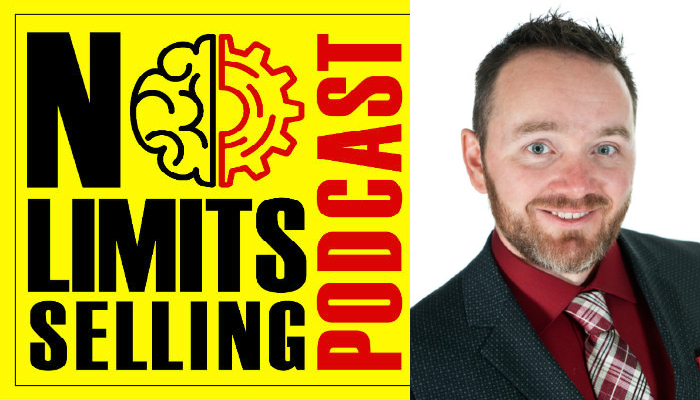3 Tactics on How to Build a Winning Culture in Your Organization
On Episode 209 of The No Limits Selling Podcast, we have Isaac Verge, Sales Representative at Keller Williams Lifestyles Realty, Brokerage. He's an expert investor who has the knowledge and personal experience of owning multi-family and single-family homes. He offers guidance that his clients can depend on with expertise in share sales, apartment buildings, and mixed-use commercial buildings. He's ready to help you grow your portfolio.

Contact Isaac:
[EDITOR’S NOTE: This podcast is sponsored by No Limits Selling. It is a fun, fast-paced podcast that delivers hard-fought business advice that you can implement today to improve your sales and performance]
Interested In Our Real Estate Coaching Services? Explore Our Website: Link
Feeling Not Well Today? You Can Use Our Mindset Boosters App To amp Up Your Mood: Link
Find us on Social Media:
LinkedIn | Facebook community | Instagram
Like what do you listen to? Subscribe to our podcast!
Ready to become fearless? We can help you become fearless in 60 days so you accomplish more in your career Schedule A 15 min Call with Umar
Summary
Introduction and Background
The podcast begins with the host, Umar Hameed, introducing Isaac Verge, the head of The Verge Real Estate Team. Isaac shares his journey from starting in real estate to building a successful team. He entered the real estate business in 2009 after a positive experience with a real estate agent who helped him and his wife sell their house. This experience sparked his interest in the industry and led him to pursue a career as a realtor.
Early Success
Isaac's first client was a former staff member from his previous management role, who trusted him despite his lack of experience. He was able to start his real estate career quickly, selling a property within a month of getting his license. In his first year, Isaac completed 53 transactions, attributing his success to his network, responsiveness, and focus on service. He emphasizes that his goal is to establish long-term relationships with his clients and ensure their success.
Building a Team
Isaac started building his team when he realized he needed help to maintain his responsiveness and service level. His first hire was an unlicensed assistant to handle back-office tasks. His first official team member was his administrator, Sarah, who got licensed in 2016. This allowed them to broaden their service level and support their growing client base. Isaac notes that the best deals he's done in real estate are the ones where he's advised clients against making a purchase, prioritizing their needs over making a sale.
Team Culture and Leadership
Isaac emphasizes the importance of having the right people on the team and creating a culture where everyone is looking for how they can add value to everyone else. He also highlights the importance of providing equal or better value to team members than what they give back in terms of their arrangement for splits.
Overcoming Challenges
Isaac shares a challenge they faced when they brought on new agents without proper onboarding systems in place. This led to a significant time investment in coaching and mentoring, which created challenges. They learned from this experience and have since been more specific and selective in their onboarding process.
Conclusion
Isaac Verge's journey from a novice realtor to the head of The Verge Real Estate Team is a testament to the power of service, relationships, and teamwork. Starting his career in real estate in 2009, Isaac quickly found success due to his network, responsiveness, and dedication to his clients. As his client base grew, he recognized the need for a team to maintain his high level of service, leading to the formation of The Verge Real Estate Team. Despite facing challenges, such as onboarding new agents without proper systems in place, Isaac's commitment to learning from mistakes and evolving has been instrumental in overcoming these obstacles.
His key advice for new realtors—making contacts, learning from failures, and leading with service—reflects his approach to his successful career. Isaac's story underscores the importance of prioritizing client needs, fostering a supportive team culture, and continuously striving for improvement in the real estate industry.
Questions & Answers
Who is Isaac Verge and what is his role at Keller Williams Lifestyles Realty, Brokerage?
What led Isaac Verge to a career in real estate?
What is Isaac Verge's approach to real estate sales?
How did Isaac Verge build his real estate team?
What advice does Isaac Verge offer to new realtors?
What is the culture like on The Verge Real Estate Team?
Don’t miss this opportunity to transform your real estate career with one-on-one coaching. As an experienced real estate coach, I, Umar Hameed, am dedicated to helping you unlock your full potential and achieve your real estate goals. To learn more about who am I and my clients ↓
If you’re ready to take the next step, book an appointment with me today and begin your journey toward success in the real estate industry.
